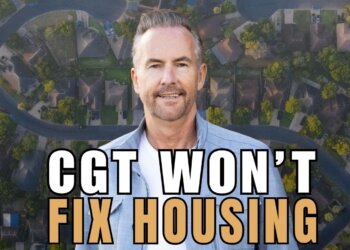By Stacey Rangitonga
Known as H1, the new regulations were introduced in May 2023 and came into force in November.
The Government looking at rolling back insulation standards is “closing the gate after the horse has bolted”, says a leading Waikato developer.
Building and Construction Minister Chris Penk has asked officials to investigate the cost of new insulation and glazing requirements, citing concerns from builders and developers about costs and overheating in some homes.
Waikato developer John Kenel, of Assured Properties, said while he believed the Government had good intentions of reducing regulations and costs, the real cost happened a year ago when the industry adapted to H1.
“They’re better off just stopping further increases for now, you know, just don’t bring any more requirements, don’t make it any more expensive.
“What they really need to do if they want to encourage building is reduce the interest rates. That’s why building consents have dropped off a cliff, that’s why we are not building very much at all – because… it’s just far too expensive to borrow money and build at the moment.”
Another more pressing issue was council infrastructure, Kenel said. “I have a number of sites in Hamilton that I can’t develop because there’s no sewer infrastructure.
“Those two things are, I think, the biggest levers that they could pull… And if we had those two things, then we could build more houses but until they happen, you can do whatever you want, you could take all the insulation out and we’re still not going to build houses.”
Kenel said H1 had its issues and he’d seen an increase of $20,000 to $30,000 on each of his townhouses as well as reports of some homes getting really hot, especially upstairs during summer.
Kingston Group’s director Peter Leach said their costs had gone up “quite significantly” since H1 regulations were introduced and said the general sentiment in the industry was that the changes were “overkill”.
Kingston Group built quality, standard housing to help first-time buyers and elderly downsize, Leach said, not bespoke, passive homes.
One of their biggest challenges under H1 was something commonly referred to as hotedge, Leach said – essentially insulation around a concrete pad.
“For a two bedroom single garage home that costs us roughly an extra $10,000 to source the products to fit it, to flash it, to paint it.
“The effect, like the positive impact on the homeowner, is so insignificant compared to the additional cost.”
Leach said he understood the need to continuously improve and strive for better houses but questioned at what point it would stop.
“At some point there’s going to be a tipping point where we’re doing all this extra work, but the actual extra benefit to the homeowner is negligible.”
In a statement, Insulation Association of New Zealand (IAONZ) executive officer Richard Arkinstall said insulation was a minor investment in new housing which generated significant cost of living savings.
The standards are “a positive first step towards a healthier, more energy-efficient New Zealand”. “By focusing on long-term benefits and choosing the right compliance pathway, we can ensure a sustainable future for the construction industry.”
Arkinstall said insulation represented “approximately 1.2-1.4% of the total build cost of a new home but its impact is significant”.
“Properly installed insulation offers a return on investment of $4 for every $1 spent through energy savings for families struggling with the cost of living, improved health, fewer sick days and reduced doctor visits. The small increase in initial build cost is worth it for higher quality housing that lasts for decades.”
Arkinstall also said the industry had made significant investment in preparation for H1 and any changes at this point would knock investment confidence and create disruption and risk for the industry as a whole.
“IAONZ has been encouraged by our recent meeting with Minister Penk, who showed strong willingness to understand the wider issues around building performance. We encourage the Government to give the insulation changes time to be properly bedded in.








